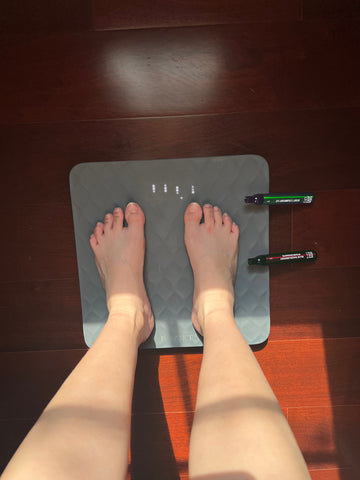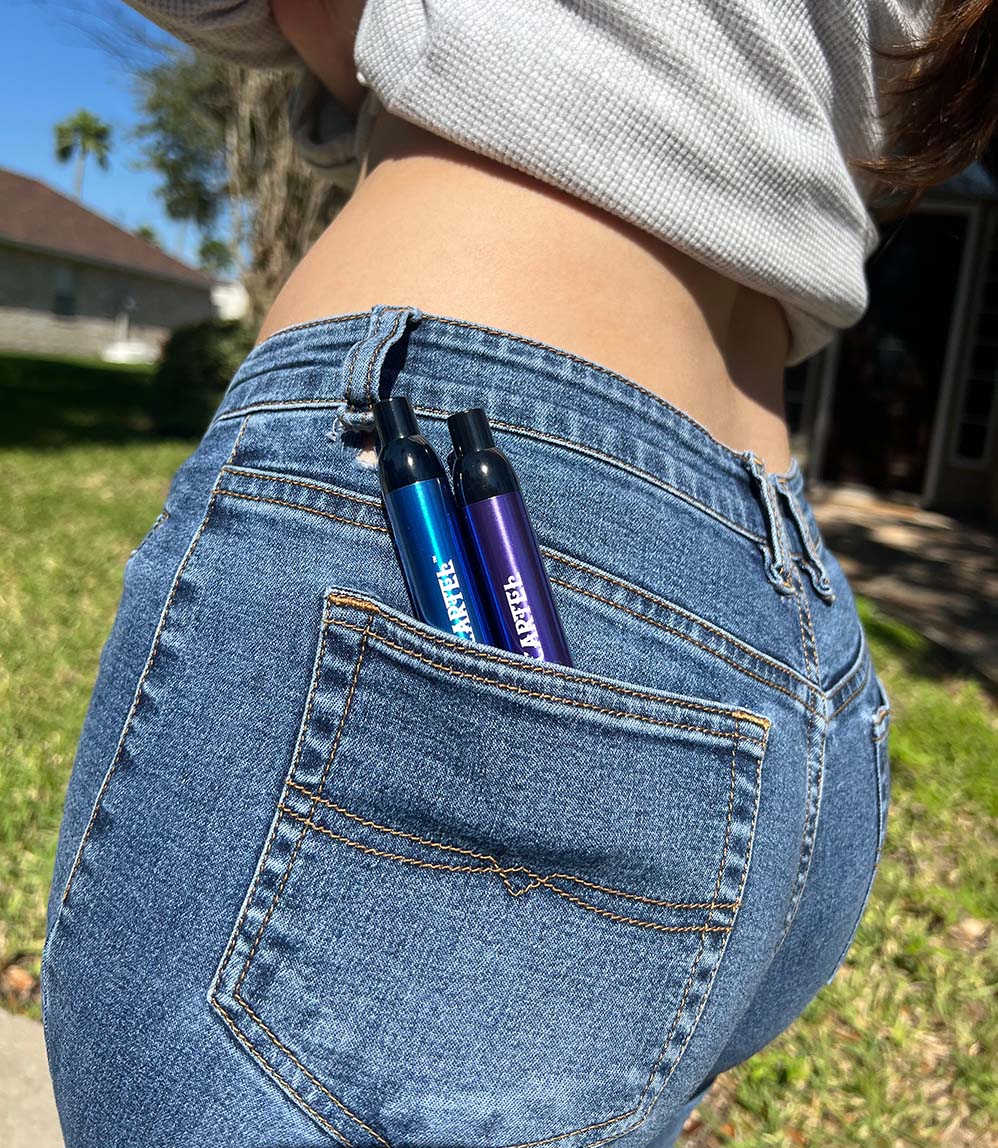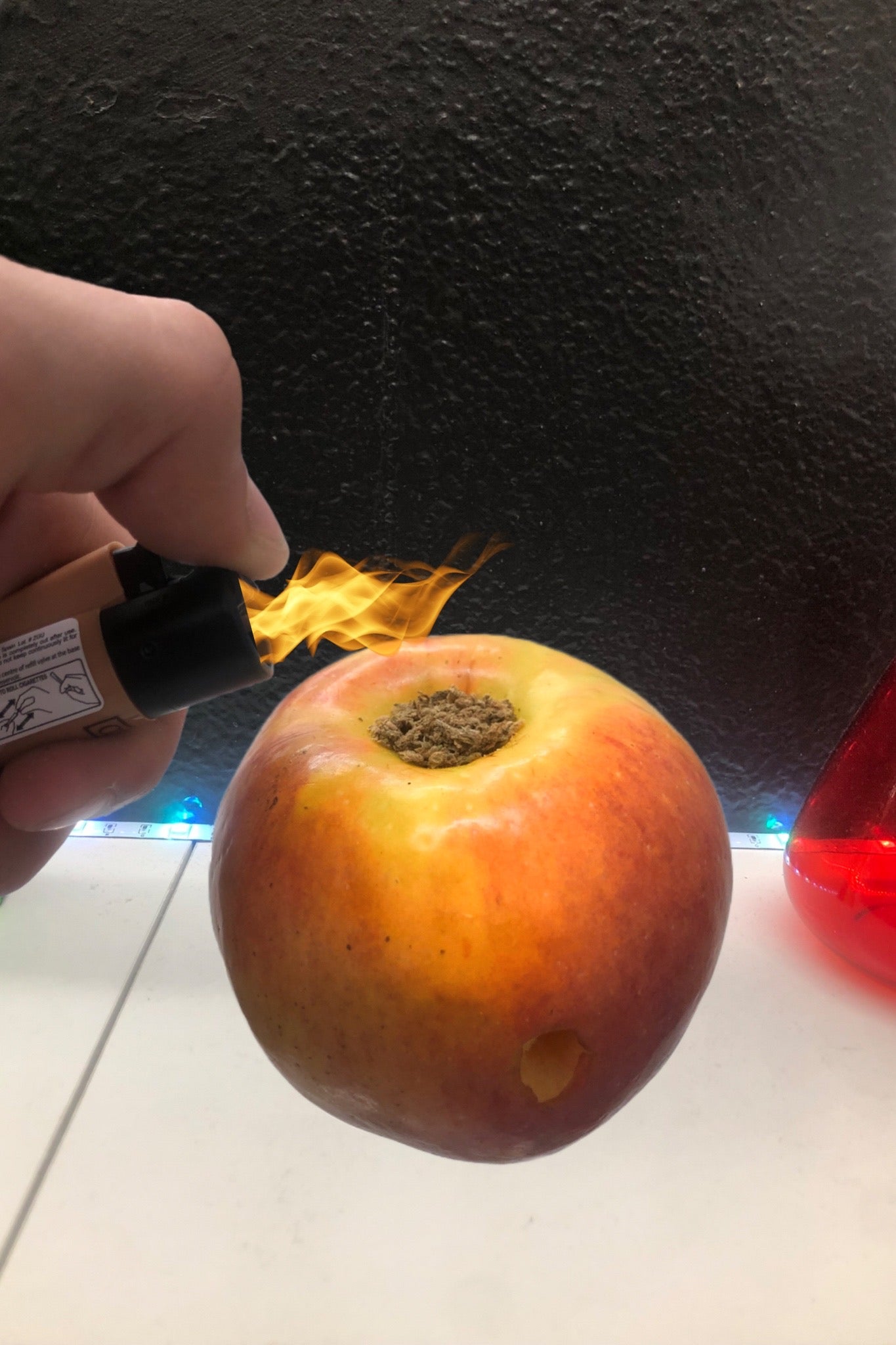In today's culture, everyone wants to be healthier and make smarter choices. That is the reason that many smokers have turned to vaping as a healthier alternative compared to traditional cigarette smoking. Vaping is also a great tool for someone who wants to quit cigarettes.
Vaping is the act of inhaling vapor produced by e-cigarettes, vape pens, or similar devices. Vaping is not only limited to nicotine, but can include CBD, THC and other molecules.
With the rapidly rising popularity of vaping and e liquids, this leaves many people wondering: "Can Vaping help me lose weight?" In this article we will cover how exactly each type of vaping affects your body in regards to appetite and weight. We will also cover other common questions regarding vaping and weight loss.
Can Vaping Help You Lose Weight? The Quick Answer
Yes, nicotine vaping can help you lose weight by increasing your resting metabolic rate, preventing "boredom eating", reducing pleasure from eating, and acting as an appetite suppressant.
Yes, CBD vaping can help you lose weight by contributing to appetite suppression and increasing the availability of "brown fat", the fat the body is ready to burn for energy.
No, THC vaping can not help you lose weight but rather promotes weight gain by acting as an appetite stimulant.

Why You Could Experience Weight Gain After Quitting Smoking and Vaping
Most people who transition to vaping do so to quit smoking tobacco.
It is not uncommon to hear of unwanted weight gain after quitting smoking cigarettes or vaping nicotine. There are a few reasons for this:
-
Research has shown that nicotine use leads to a faster metabolism. This means that your body will burn more calories in a resting state. Although the difference is not huge, it could lead to a small difference in weight over time.
-
Using nicotine throughout the day will reduce boredom, and therefore can prevent someone from "boredom eating." This is caused by the dopamine release associated with nicotine. It can also distract you from eating on a regular schedule.
-
Nicotine vaping and smoking cigarettes has been shown to reduce overall pleasure from eating as well as numbing your taste and smell. This could cause you to gain weight if you quit vaping and therefore begin to find more pleasure in eating.
-
When smoking and vaping, your blood vessels will constrict and narrow, which will suppress appetite. These blood vessels causing appetite suppressing effects may also affect your stomach and make it work slower, which will in turn decrease hunger.
Overall, there are many different ways that vaping and smoking can affect your weight control and how much you eat. These are the reasons that someone may experience weight gain after quitting smoking or vaping.
These effects are usually temporary, and your body will most likely return back to a normal weight after a period of time. How long it will take depends on frequency and length of use.

Sweet and Fruity E-Liquids
Most popular vapes use vape juice that mirrors real foods. Vapes are made to be flavored like fruits, candies, sugary foods, and even popular drinks. These highly flavored and great tasting vapes may act as a replacement for eating real fruits and candies. This is another reason why smoking flavored nicotine can lead to weight loss.
These flavored e-juices can also lead to craving sweets, candy, and sugary snacks. This means that someone who quits smoking may temporarily increase their food intake while their body adjusts to the change.

Do Vapes Contain Calories?
Yes, vapes do in fact contain calories. Each e-liquid will vary on its specific calorie count. This is due to the assorted ingredients placed in each juice. Each 10mL bottle commonly contains 50 calories; you would be receiving 5 calories per milliliter of liquid [1]. This is barely any calories.
These calories originate from the PG (Propylene Glycol) and VG (Vegetable Glycerine) bases that form the foundation of the e cigarettes liquid rather than from the actual flavor itself.
Because the calorie intake in vaping is significantly low, it does not contribute to any long term weight gain. The calories gained from the inhalation of the vaping device are minimal compared to how many calories are lost.
Overall, the nicotine in the vape device suppresses the user’s appetite due to the constriction of blood vessels and increases their resting metabolic rate leading to weight loss.
Vaping and Fasting
Fasting is a practice where an individual abstains from consuming food or certain types of food for a certain period of time. When fasting the body begins to undergo ketosis due to the lack of glucose being used for energy. This causes the body to break down fat for energy. The specific rules of fasting can vary depending on the individual's religious or personal beliefs, but generally, the goal is to abstain from consuming calories.
Vaping does not involve consuming food or calories, so technically it would not break a fast. Yet, some smokers maintain a difficulty in completing a fast because it can cause their stomach to become upset.
However, it's important to note that many people who fast do so for religious or spiritual reasons, and there may be other rules or guidelines that would prohibit vaping during a fast. It is recommended to consult a health care professional and do your own research.
THC Vaping and its Link to Weight Gain
With the popularity and mainstream acceptance of nicotine vaping, cannabis users have also been switching to vaping in search of a healthier way to consume. This involves vaporizing cannabis or weed oils in a vape pen as opposed to burning flower.
It is no secret that THC is a direct appetite stimulant [2] which means it is known for causing users to gain weight. This situation is popularly referred to as: "The Munchies."
It is important to note that weight gain from THC usage is more common among those who are significantly underweight or overweight. For someone who is underweight THC may be used as a tool to gain weight and reach a healthier weight. For those who are overweight it may escalate the problem.
On the contrary, someone who is relatively healthy and has good lifestyle habits will most likely not experience any significant weight gain. In fact, THC usage may enhance your workouts by increasing focus and by removing some of the social anxiety associated with going to the gym. It may also increase pain tolerance helping you push through that last stretch of your workout.
Another thing to keep in mind when THC vaping is certain strains and terpenes will cause more hunger than others. Other strains may cause excessive dryness or "cotton mouth" which can make it harder to eat since your mouth will have less saliva to break down food. Keeping this in mind, it is important to test different strains to find one that fits your specific goals.

CBD Vaping and its Link to Weight Loss
CBD vaping involves using a vape to inhale oil which contains CBD isolate instead of using e liquid. These vapes usually do not contain any THC or nicotine content. There is actual research [3] to show that CBD vaping can help you lose weight and prevent weight gain. There is two primary reasons for this:
-
CBD suppresses appetite by blocking some of the receptors that are responsible for feeling hunger.
-
CBD is linked to an increase in "brown fat" which is the fat the body is ready to burn for energy. This is opposed to "white fat" which is the fat the body uses for long term storage. This processes can help the user lose belly fat.
Understand the Risks of Vaping
All in all, vaping nicotine and CBD will aid with losing weight, while vaping THC may increase body weight. Despite this, it is important for all users to understand that vaping is a relatively new technology and there is still uncertainties surrounding its long term effects.
While we know that vaping is less dangerous than smoking in the short term, we still have yet to see evidence emerge about vaping on a 20 or 30 year time scale.
Based on anecdote, there are some undeniable negative side effects that all vapers must keep in mind. These side effects may be different for everyone, and for some they may even outweigh the benefits of losing weight. These effects may include but are not limited to: a decrease in cardiovascular health, laziness, or addiction.
It is important to view weight loss from nicotine vaping as an added benefit to something that you are already doing, rather than something non smokers should start doing to lose weight. CBD vaping on the other hand, has been associated with much less negative effects and has still been proven to help with healthy weight loss.
Natural, Proven Ways to Increase Metabolism and Lose Weight
Although vaping is a proven appetite suppressant, it is not recommended to rely solely on vaping to reach all of your weight management goals. Additionally, as discussed earlier, using e cigarettes can also have unwanted side effects that can lead to an overall less healthy lifestyle and high body image concerns.

Here are a few natural ways to increase metabolism and promote weight loss:
-
Exercise: Regular physical activity, particularly strength training and high-intensity interval training (HIIT), can increase muscle mass and boost metabolism.
-
Eat enough protein: Protein takes more energy to digest than carbohydrates or fat, so eating a diet high in protein can help boost metabolism.
-
Get enough sleep: Lack of sleep can disrupt hormones that regulate hunger and metabolism, so getting enough sleep is important for weight loss.
-
Drink green tea: The antioxidant catechins in green tea may help boost metabolism and promote weight loss. [4]
-
Eat spicy foods: Some studies have found that spicy foods can boost metabolism and promote weight loss.
-
Stay hydrated: We encourage uptake of water to help increase metabolism and promote weight loss.
-
Consume fiber-rich foods: Eating fiber-rich foods such as fruits, vegetables, and whole grains can help increase metabolism and promote weight loss.
-
Incorporate Intermittent Fasting: Intermittent fasting is an eating pattern that alternates between periods of eating and fasting. This can help increase metabolism and promote weight loss.
It's worth noting that losing weight is a combination of factors, including a healthy diet, regular physical activity and maintaining a calorie deficit. Additionally, it's important to consult a healthcare professional [2] before making any significant changes to your diet or exercise routine.








